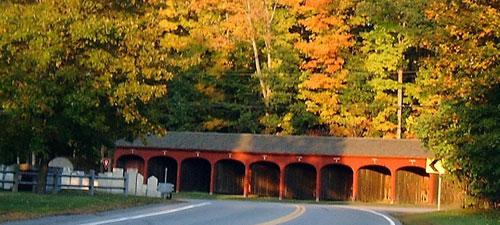Lyme Life
Close-knit neighborhoods are a cherished feature of life in Lyme, dating from the days of its thirteen school districts, when children attended one-room schoolhouses dispersed throughout the town, a system that remained in place until 1959. Today, Lyme’s children attend kindergarten through eighth grade in the school at Lyme Plain, and then choose a secondary school from among those in neighboring towns.
Ties with other Upper Valley towns, present since the Revolutionary War era attempt to secede from New Hampshire, have become ever stronger through the years, as Lyme people participated in the growth first of Dartmouth College in nearby Hanover, and then in the development of its medical school and the Dartmouth Hitchcock Medical Center. The connection with the college remains firm as a number of graduates settled in Lyme after completing their careers. Lyme’s population has become a comfortable combination of those whose families have called it home for generations, and those drawn to the town by its natural beauty and its nearness to an engaging cultural center.
Lyme has always appealed to those who appreciate the outdoors, and outdoor recreation is an important part of life here. The Appalachian Trail runs through the eastern part of town over Holt’s Ledge and Smarts Mountain. The Dartmouth Skiway occupies the slopes of Holts and Winslow, straddling the old Grafton Turnpike. Post Pond is popular in winter for ice skating and fishing. Public trails on town conservation land offer hiking, snowshoeing, and cross country skiing, and the Lyme Pinnacle Snowmobile Club’s energetic membership maintains miles of trails. Lyme’s youth and adults participate in a wide variety of sports.
Townspeople have a talent for organizing celebrations and special events to bring the community together, whether it’s the Pumpkin Festival on the Common, Utility Club’s Annual Tree Festival on the Common, Old Home Day parades through the two villages, or the annual Fourth of July celebration at Post Pond. Both the Lyme Congregational Church and the First Baptist Church of Lyme are settings for secular community events as well as religious worship.
Active participation in the life of the town has always been valued, and Lyme has a strong tradition of volunteerism and neighborly support. Lyme is fortunate that its citizens continue to take an active interest in local civic responsibility, and governs itself through decisions made at Town Meeting. Although business today is far-reaching as Lyme workers telecommute long distances, the center of commerce remains the family-owned hardware and country stores that have served the town since the 1800s.


